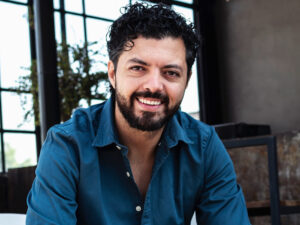Spiber is valued at $1.22 billion following its latest fundraising round – while SpotOn hit a post-money valuation of $3.15 billion, according to reports.
Elsewhere this week, the US Congress is planning a major spending spree on agricultural research and development; while researchers shared findings which suggest that meat makes up nearly 60% of food production-related greenhouse gas emissions.
🇺🇸 Congress earmarks $7.75 billion investment for agricultural research and infrastructure. In its section of the US government’s American Rescue Plan reconciliation bill, the House Agriculture Committee outlined $.7.75 billion in mostly climate-related spending to be distributed over the next five years. It will vote on the proposals next week. (Politico)
🌐 Meat accounts for more than half of food production’s greenhouse gas emissions. Those are the findings of a new study from researchers at the University of Illinois, which also states that beef alone is responsible for a quarter of all food production-related emissions. (AFN)
🇯🇵 Spiber spins $312 million from Carlyle, Fidelity, and others. The Tsuruoka-based startup makes plant-based protein polymers through microbial fermentation, which can be spun like spider’s silk. Baillie Gifford also participated in the round, which values Spiber at $1.22 billion. The startup said it plans to build a production facility in the US – and is now mulling an IPO. (Reuters)
🇺🇸 SpotOn raises $300 million and acquires mobile commerce platform Appetize. SpotOn, a provider of retail management and payments software for small businesses including restaurants, is said to be valued at $3.15 billion following the investment. (TechCrunch)
🇩🇪 Formo raises $50 million Series A for animal-free cheese made by microbes. The startup inserts DNA sequences into the microorganisms to ‘instruct’ them to produce casein and whey, which are the two key components of cow’s milk. (AFN)
🇺🇸 Small-batch, chef-prepared meal service CookUnity raises $47 million Series B funding. The round comes only eight months after the startup’s $15.5 million Series A. CookUnity’s subscription-based rotating menu highlights meals from chefs who can create digitally native businesses through its app. (TechCrunch)
🇳🇿 Halter raises $32 million to expand its dairy cow remote collar technology. The startup’s solar-powered GPS collars guide cows using sound and vibrations to create a virtual fencing system. (Stuff)
🇪🇸 Food delivery app Glovo makes brace of acquisitions. The on-demand delivery platform, which operates a network of dark stores across Europe, is buying two grocery picking and delivery-focused startups: Spain’s Lola Market and Portugal’s Mercadão. (TechCrunch)
🇺🇸 Plant-based pet food maker Wild Earth scores $23 million funding to move into cell-cultured meat. Mark Cuban, who first backed the startup when founder Ryan Bethencourt pitched on Shark Tank, participated in the round alongside VegInvest, Big Idea Ventures, Bitburger Ventures, and actor Paul Wesley. (CNBC)
🇺🇸 Restaurant management software startup MarginEdge raises an $18 million Series B round. Co-founders Bo Davis and Roy Phillips previously held leadership roles at conveyor sushi belt restaurant chain Wasabi and casual dining company Bloomin Brands respectively. (TechCrunch)
🇺🇸 Walmart releases Row Crop Position Statement outlining best practices for row crop farming. The new recommended practices, outlined here, are part of the retail giant’s September 2020 commitment to sustainably sourcing at least 20 key commodities by 2025. (CSA)
🇺🇸 CHKN Not Chicken raises $4.5 million Series A funding for pea protein chicken alternatives. Its faux chicken can be used in a range of recipes like stir fry, tacos, salads, sandwiches, and more, according to the startup. (Supermarket Perimeter)
🇩🇪 ‘Better for you’ foods maker The Nu Company closes $16.5 million Series A round. The company offers a vegan and reduced-sugar chocolate line called Nucao as well as an organic protein brand, Numove. It focuses on plastic-free and climate-positive foods. (EU Startups)
🇮🇩 Cloud kitchen startup Legit banks $3 million seed funding. The virtual restaurant says it wants to become “the leader in creating delivery-first food and beverage brands in Southeast Asia.” (AFN)
🇳🇱 The Dutch government is considering cutting the country’s livestock population by as much as 30%. The aim would be to reduce nitrogen emissions and runoff. Some of the suggested measures could require livestock farmers to sell emissions rights — or even their land — to the state. (AFN)
🇳🇱🇧🇷 Royal DSM secures regulatory approval for methane-reducing feed additive in Brazil. This is the first market authorization the Dutch chemicals giant has secured for the product, called Bovaer. The company claims a quarter-teaspoon of Bovaer per cow, per day can reduce enteric methane emissions by roughly 30% for dairy and 90% for beef cattle. (AFN)





